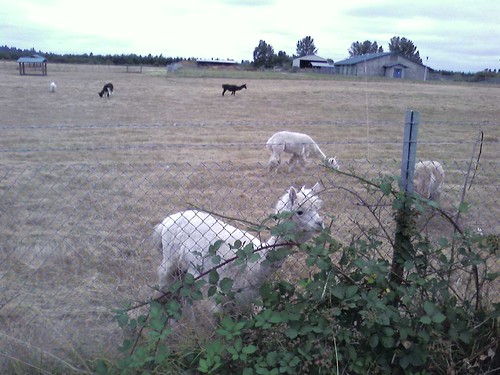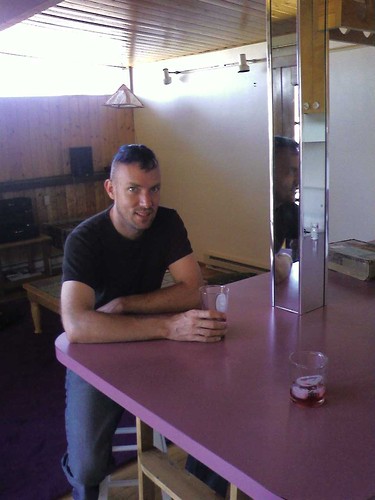How to succeed as a student
Well, I've just finished my first semester in grad school. Well, not my "first" really, because I got a master's degree 15 years ago, but I had a very different attitude towards that experience, and I got very different things out of it. Here's what I've learned so far this time around:
Grad school, at least the way Oregon State does it, is not so much about learning ideas as it is about learning to communicate ideas clearly and engagingly. I took one graduate-level class, and participated in several research groups, and we were repeatedly asked to present our own projects, or our understanding of papers we'd read, to the group. It was remarkable how quickly some people improved over the course of even our short 3-month term, and how easily you could tell second-year from first-year students. (As for me, I was thinking more about content than presentation, so I'm really not sure if I improved or not. I may need to ask for some feedback.)
I also did grading of exams and projects an undergraduate "writing-intensive" software engineering class, and quickly discovered that I was asking too much of myself to attempt to grade the students' "understanding" of the material -- all I can do is evaluate their presentation of it. My math-teacher friends Matt and Jenni told me the same thing: they constantly have to remind students that they're grading their work, not their understanding of concepts: teachers are not mind-readers.
Students would do well to think of studying in terms of practicing their performance, rather than checking their understanding. I think there was a time that I would have rankled at that suggestion; that somehow it was noble to increase my understanding of the world, and that practice was secondary. But understanding reaches a dead end quickly without practice; it's ephemeral and ungrounded and forgettable. We delude ourselves into thinking our understanding is firmer than it really is; only in practicing it and explaining it to others are we confronted with the holes and contradictions.
Another thing I learned is that articles written for conferences and journals are not so highfalutin' as I thought they were. They're glorified term papers. Like term papers, they're required of certain people and they represent about a term's worth of work. They're original and interesting at their best, but they don't all get picked up by the New York Times, turn the scientific establishment on its head, or win Nobel prizes. They're just updates on what you're working on, and they keep you on track and in communication with your colleagues. I guess I had the notion before that "publish or perish" was a critique of the shallowness of academic bureaucracies, but it just doesn't seem that way from what I'm seeing at OSU: paper submissions are simply a way to chunk and organize this otherwise vague process called "research". If someone is researching but not publishing, they're making the same mistake as the student who thinks understanding the material is more important than communicating it. If you discover the wheel but can't think of a way of demonstrating its usefulness to other people, then your discovery won't make any practical difference in the world. Anyway, that's how things look to me as a newbie; we'll see how I feel after a few rejections :-) So far I love being a graduate student. I love being paid to think about stuff that used to be a hobby. I don't love every single thing I'm working on, but I don't hate any of it. I have some serious, but I think healthy and natural, uncertainty about how I'm going to position my perspectives and passions within the corner of the academic world I've chosen to start in. I can't just pursue any crazy cool idea I come up with, because everyone around me has their own interests and perspectives, and I have to learn how to collaborate. My adviser is a proficient cat herder, and I want to learn that from her, and let myself be herded a little; but I still want to stay in touch with my cat-nature.
So far I love being a graduate student. I love being paid to think about stuff that used to be a hobby. I don't love every single thing I'm working on, but I don't hate any of it. I have some serious, but I think healthy and natural, uncertainty about how I'm going to position my perspectives and passions within the corner of the academic world I've chosen to start in. I can't just pursue any crazy cool idea I come up with, because everyone around me has their own interests and perspectives, and I have to learn how to collaborate. My adviser is a proficient cat herder, and I want to learn that from her, and let myself be herded a little; but I still want to stay in touch with my cat-nature.
(thanks Westernlady and Tiger for the picture!)

















